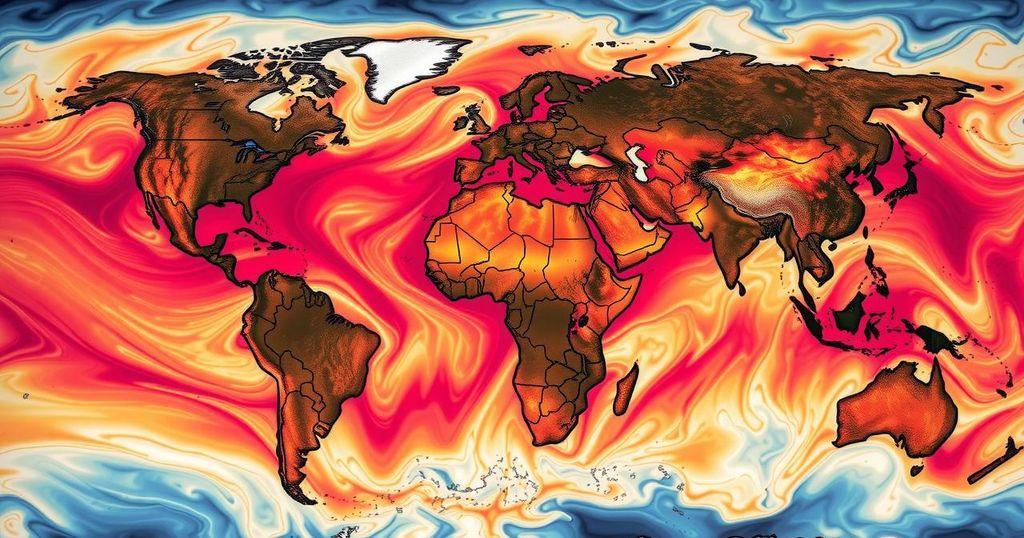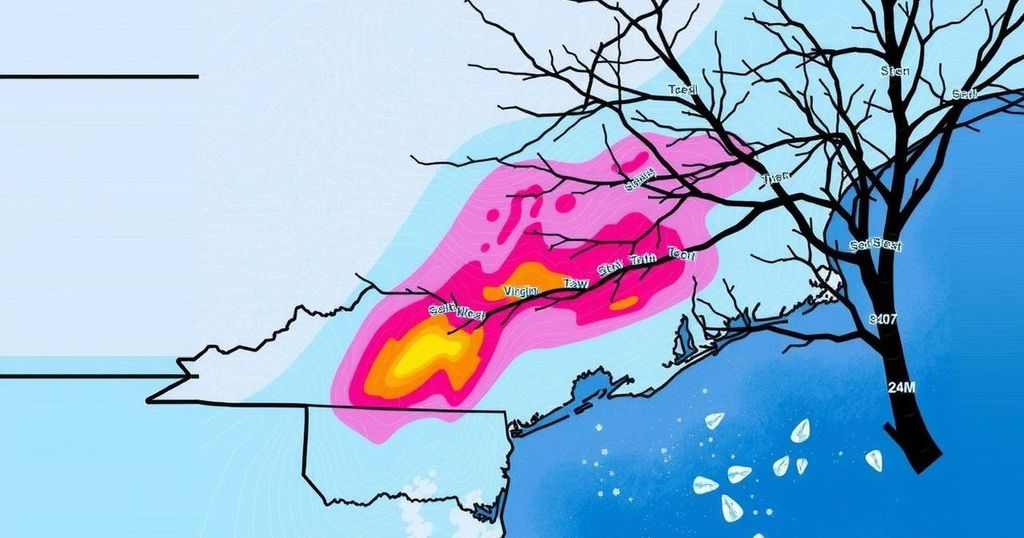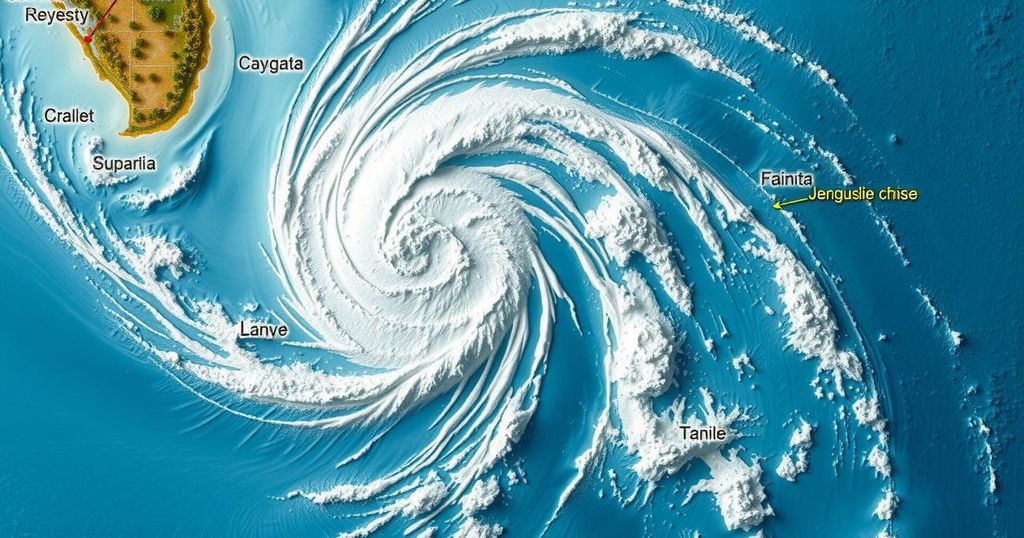Weather
AARON FAVILA, ANDY WONG, AP, ASIA, ATHENS, BEIJING, CENTRAL, CHINA, CLIMATE, CLIMATE CHANGE, COUNTY HOMELESS TRUST, CROSS, CUBA, EUROPE, FELIX MARQUEZ, GLOBAL WARMING, GREECE, LYNNE SLADKY, MIAMI - DADE COUNTY HOMELESS TRUST, NORTH AMERICA, PARTHENON, PHILIPPINES, PRIZES, QUEZON CITY, WEATHER
Ethan Kumar
0 Comments
2024 Sees 41 Extra Days of Dangerous Heat Due to Climate Change
In 2024, climate change resulted in an average of 41 additional days of dangerous heat worldwide, as reported by climate researchers. This year witnessed record-breaking temperatures and severe weather events associated with human-driven climate change, posing significant risks to public health and infrastructure, and underscoring the urgent need for action.
In 2024, climate change significantly increased the number of dangerously hot days experienced globally, with an average of 41 additional days reported. Researchers from World Weather Attribution and Climate Central have linked this alarming rise in extreme heat events primarily to human-induced climate change. The findings indicate that this year was particularly catastrophic, with unprecedented heatwaves affecting millions, exacerbating droughts, and intensifying tropical cyclones and heavy rainfall across various regions. Global temperatures are projected to continue rising, with annual climate records consistently being shattered and extreme weather becoming the new norm.
The analysis highlighted the severe effects of climate change, not only in terms of the increased frequency of extreme heat but also its connection to multiple deadly weather events throughout the year. Many areas experienced conditions described as some of the hottest ever recorded, putting immense strain on public health and infrastructure. Regions such as Northern California and Greece faced critical temperatures, while vulnerable communities in developing nations experienced even more pronounced impacts, underlining the urgency of addressing climate issues. The research suggests that the continuous reliance on fossil fuels is fuelling this crisis, demanding immediate global action to mitigate further environmental harm.
These findings are grounded in a comprehensive analysis comparing 2024’s temperature data against a world without climate change. Although still awaiting peer review, the methodology employed by the researchers aligns with established scientific practices. Furthermore, a staggering proportion of extreme weather events analyzed—26 out of 29—were directly correlated with climate change, indicating the pervasive influence of global warming.
The year 2024 serves as a critical warning as the planet approaches the Paris Agreement’s 1.5 degrees Celsius threshold for temperature rise relative to pre-industrial levels. The anticipation of surpassing this limit presents alarming concerns for future climate stability, with significant implications for humanity and the planet.
The current analysis digs into the crucial issue of climate change and its far-reaching impacts on global weather patterns, particularly emphasizing the stark increase in extreme heat events. Within the context of 2024, researchers examined how human activities have been the primary driver behind the observed climate anomalies, leading to unprecedented heat levels and associated natural disasters. As scientific inquiry progresses, understanding the correlations between various extreme weather phenomena and anthropogenic climate change becomes vital for future preparedness and climate action efforts.
In conclusion, the alarming increase of 41 extra days of hazardous heat in 2024 highlights the critical impacts of climate change on global weather patterns. This research underlines the necessity for urgent international cooperation to mitigate the influences of fossil fuel consumption and to adopt sustainable practices to protect vulnerable populations from extreme weather effects. As the scientific community raises the alarm on climate risks, proactive measures are essential in averting further catastrophic outcomes.
Original Source: apnews.com




Post Comment